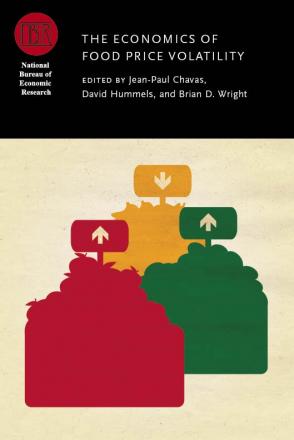Trade Insulation as Social Protection
Published Date
Copyright 2014
ISBN 9780226128924

In a world with volatile food prices, countries have an incentive to shelter their populations from the induced real income shocks. When some agents are net food producers while others are net consumers, there is scope for insurance between the two groups. A domestic social protection scheme could transfer resources away from the former group to the latter in times of high food prices, and do the reverse otherwise. We show that in the presence of consumer preference heterogeneity, implementing the optimal social protection policy can potentially induce higher food price volatility. Such a policy indeed generates a counter-cyclical demand shock that amplifies the effects of the underlying food shortage.
-
Copy CitationQuy-Toan Do, Andrei A. Levchenko, and Martin Ravallion, The Economics of Food Price Volatility (University of Chicago Press, 2014), chap. 9, https://www.nber.org/books-and-chapters/economics-food-price-volatility/trade-insulation-social-protection.Download Citation
-


